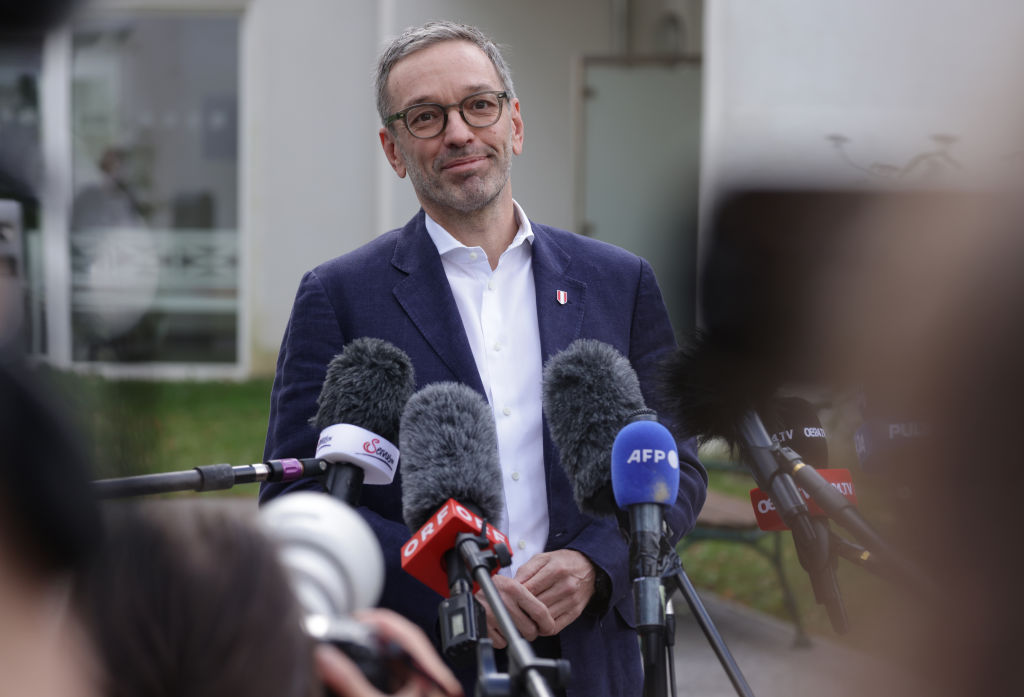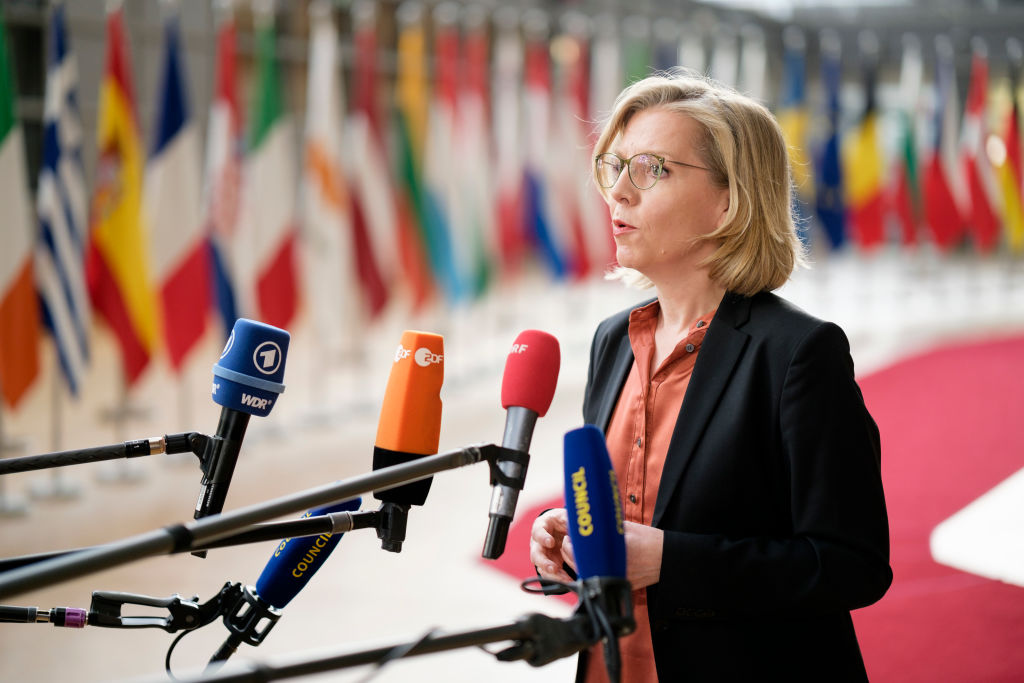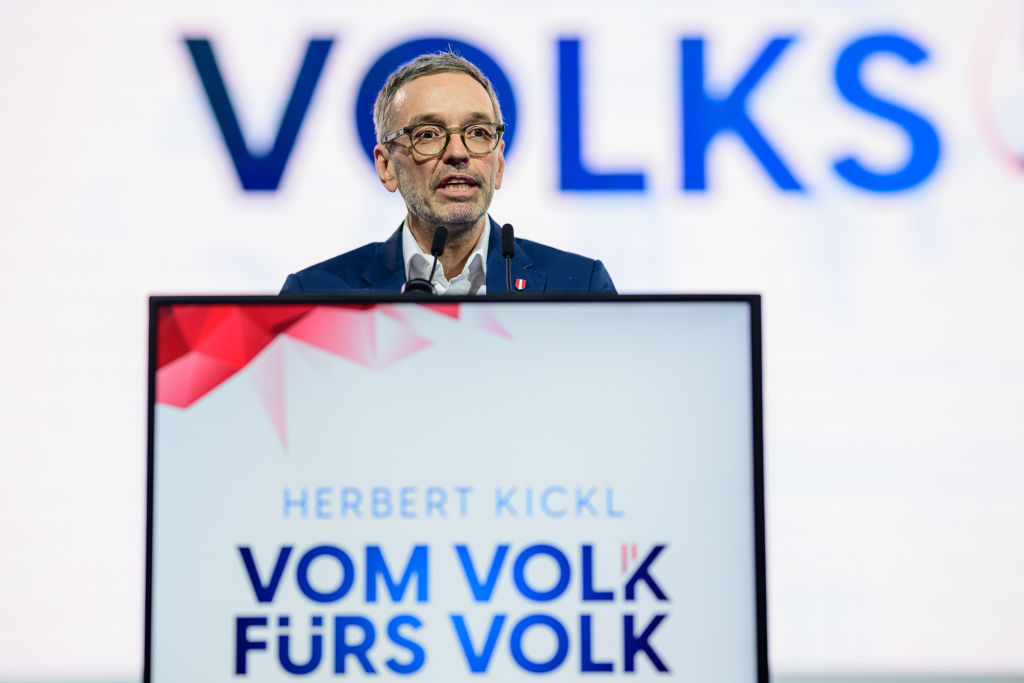On June 10, Austria suffered one of the deadliest school shootings in its history when a man killed 10 people and injured 11 more at his former high school before turning his gun on himself. Such events are uncommon in Europe, and very uncommon in Austria: Its last mass school killing occurred in the 1990s. The entire country immediately entered a period of mourning, with all major government officials attending a mass near the school in Graz.
They also pledged action. While details are still being worked out, the governing coalition – of the centre-right People’s Party, the centre-left Socialists, and the centrist Neos – put forward a package of four general ideas they intend to pursue in the aftermath.
Most are perfectly acceptable ideas, which either should be adopted immediately or should have been adopted years ago. A suggestion to ban younger people from social media – a policy increasingly gaining steam around the West – will likely pass, as will increasing the number of school psychologists. A proposal to financially support victims should likewise pass without incident.
But there is one suggestion which should be resisted, however politically difficult that will be: Gun control. Like the others, the details of new gun restrictions are vague, and must still be worked out. Chancellor Christian Stocker of the People’s Party said there would be “stricter eligibility requirements for gun ownership and restrictions for certain risk groups.” The only thing which is certain is that it will not include a full ban on private firearm ownership. That proposal, suggested by the Greens (who have been out of power since earlier this year), was vetoed by the government, particularly by the People’s Party.
However, there is much else that the government could do. Austria has one of the most liberal gun ownership legal schemes in the European Union. While, like elsewhere in Europe, fully-automatic machine guns are banned, semi-automatic (one pull of the trigger, one shot fired) rifles and pistols can be obtained provided one acquires a licence; this process includes a prognosis of one’s mental health. As for long guns like bolt-action rifles? Austria is the only country in the EU which allows you to purchase one without any licence whatsoever (a fact which I have found surprises many non-firearm owning Austrians). This has resulted in Austria having an extremely high per capita gun ownership rate. Much of the country is rural, and the People’s Party – as the historic party of farmers – has protected gun rights in the past.
Suggestions to limit the ability to carry a gun further are nonsensical. Obtaining a concealed carry permit in Austria is extremely difficult, and few Austrians regularly carry pistols. Restricting these permits further would solve nothing. The shooter on June 10 did not have a permit to carry (as criminals do not often ask permission), and there is no hard evidence concealed carry permit holders commit more crimes. Think about it: Why would you jump through an oftentimes complex legal process, which goes on for months and is extremely invasive, just to commit a crime? Plus, neighbouring Czechia is awash in concealed carry permits. There, people do not need to provide a reason, and a right to own a firearm is in the constitution.
What about bans on ownership? The government is considering raising the age at which one can own a weapon. This is not on its face a radical proposal; some conservative American states, such as Florida, raised the age at which one can own an AR-15 from 18 to 21. In Austria, you can own a long-gun at 18, but a pistol at 21. Feasibly, the proposal would raise the former to the latter. But this too would not actually solve the problem. The shooter, after all, was 21. Plus, if one is an adult, it would make sense that one should have all of their rights as an adult. You cannot have half-adults.
Gun controllers would be opposed to these arguments: “Why,” they often say, “do you not want to save lives?” But it’s just that: those who oppose firearm restrictions do want to save lives. There just is not much evidence that restricting firearm ownership saves people.
After all, Austria is already full of guns, as is Czechia. And while Austria has had fewer shootings than America – also full of guns – its small population plays a role in that as well. If population sizes were equal, Austria would have had about 75 mass shootings between 2000 to 2022 (in that time, America had 109). And while America’s contagion of school shootings truly began in the 1990s, it is not as if gun ownership shot up in that decade. Privately-owned guns have been a mainstay of American life since before the founding of the country and the passage of the Second Amendment in the early 1790s.
Plus, the sad fact is that if someone wants to kill a lot of people, and they have a modicum of intelligence so as to not get caught while planning, they will likely succeed. Stabbings in Britain are now so bad that the government is considering banning “pointy” knives. And China has been beset with mass stabbings. For just one example, a 21-year-old, the same age as the Austrian mass killer, used a knife to kill eight people and injure 17 more.
All of these people were perhaps mentally unwell. Some had issues at home. Absent fathers has been a suggested correlation, as many mass shooters do not have a father at home. In 2018, out of the 27 deadliest mass shooters in American history, the overwhelming majority did not have an “intact family,” and many were missing fathers. The Austrian shooter also had an absentee father. Other major mass shooters were on SSRIs (anti-depressants), which have been found sometimes to increase violent tendencies.
In short, this is a societal problem, not a gun problem. If it were not, Czechia, Austria, and many other countries would have been awash on bloodshed long ago. Banning guns will not change this, nor will banning pointy knives. All it will do is punish those who were already following the law. Until we are willing to take a hard look at what is affecting our young people – social media may be a good place to start – we will not do anything to slow these killings.





Austrian lawfare tried to wreck him, but honest Kurz gets up again